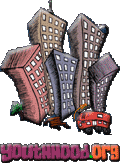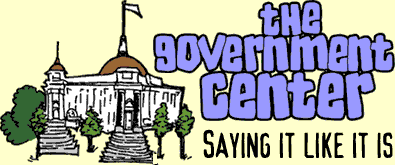Describing Disability
Words are very important, and as we all know, they can be very harmful if used carelessly. Sometimes the words people use to describe things started out being okay, but over time, became words that people felt bad about using and made others feel bad when they used them. Some words were never very nice or respectful words to describe people in the first place. Or, sometimes a word is okay, but people just use it in the wrong way.
Part of learning about yourself and your disability means helping to change the terms people use to talk about disabilities. As you become a leader at school and in the community, you need to become aware of the best words to use when talking about yourself or other people.
Bad Words: Some Inappropriate or Bad Terms – Don’t Use These!
- Handicapped: A person is not handicapped, but people or places that do not consider the needs of an individual may turn out to be a handicap. For example, inaccessible buildings are handicaps to people with disabilities. As more places are made accessible, people who use wheelchairs will experience fewer such “handicaps.”
- Crippled: Some people with and without disabilities still occasionally use this old term. Many people see this word as a “put-down” to people with disabilities and don’t like to hear it.
- Retarded: Retarded (or retard) is a term that should never be used to label someone. Mental retardation is a medical term to describe a person with a condition such as Down syndrome.
- Birth defect: Most people with disabilities do not see their disability as a defect. It doesn’t matter if they were born with their disability or developed the disability later in life.
- Disabled person: When referring to a person with a disability, refer to the person first and the disability second. You should always say “person with a disability.”
Good Words: Some Appropriate or Good Words to Use – Use These!
There are many words that are good for talking about disabilities and for describing people with disabilities. Each person will have their own ideas about which terms are the best. Here are a few things to remember when talking about your own disability or about another person who has a disability.
Be Respectful – The most important thing in language is always to use it in a way that shows respect for the person you are talking to. This includes respecting yourself when you are explaining your disability and respecting someone who has a disability or some other difference. That means you need to ask other people about words they like or don’t like to use when talking about themselves. You might also want to ask them why they like those words.
Use “Person-First” language – Most people with disabilities agree that they don’t want to be talked about as if they are their disability. This means that their disability isn’t usually the most important or the only thing people should know about them. People want to be known as a regular person first, and then according to their disability. For example: Don’t say, “I’m learning disabled,” say “I am a person who has a learning disability.” That way people will remember your disability is one part of who you are, but that you have many other parts too, just like anyone else.
Try a Youthhood activity:
|

















